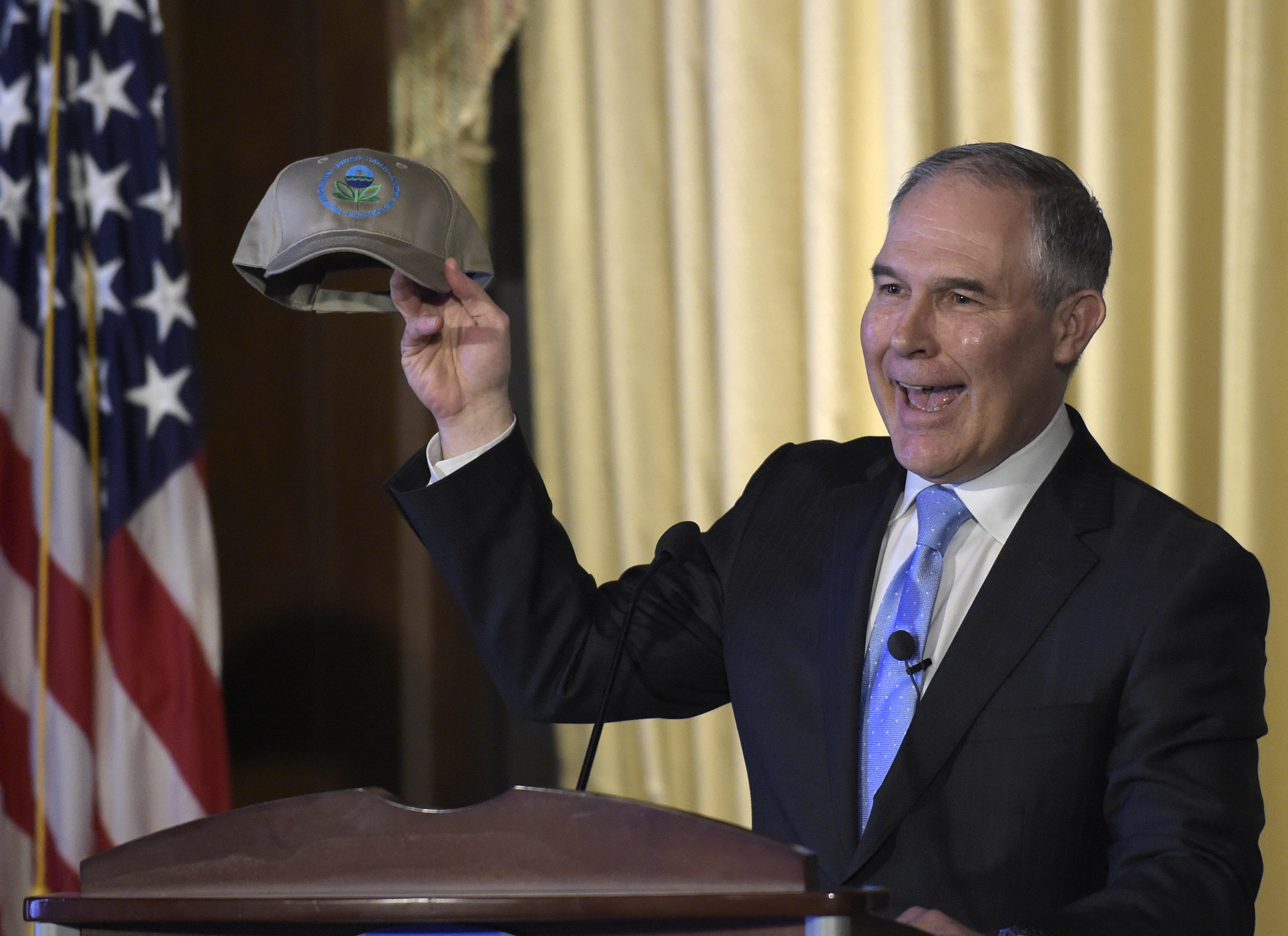It has been a rough week for Environmental Protection Agency (EPA) Administrator Scott Pruitt.
On Sunday, the Washington Post reported that Pruitt spent at least $90,000 on first class and business class plane tickets while traveling for official government work last June. On Tuesday, Pruitt boarded a flight from D.C. to Boston — and publicly acknowledged that he flew first class for the hour-long flight.
Critics pointed to the trip — as well as the EPA’s subsequent explanation that Pruitt has a “blanket waiver” for first class travel due to security issues — as an egregious example of Pruitt’s penchant for spending taxpayer money. Sierra Club executive director Michael Brune called out the administrator’s “dangerously skewed priorities and extravagant spending habits.”
But the focus on Pruitt’s luxury travel habits has overshadowed a potentially larger scandal: under the first full year of Pruitt’s leadership, the EPA has closed far fewer enforcement actions against polluters than in any recent administrations’ first year.
According to a report released on Thursday by the Environmental Integrity Project, the Trump administration resolved 48 civil cases in the year since inauguration, resulting in a total of $30 million in penalties. By contrast, the Obama administration closed 71 civil cases for a total of $81 million (adjusted for inflation) in its first year, and the Bush administration closed 112 cases for a total of $70 million (also adjusted for inflation) over the same period of time.
“We’ve heard Scott Pruitt say that he means to enforce the law, but enforcement means results, and actions speak louder than words,” Eric Schaffer, former Director of Civil Enforcement at the EPA, said during a press call.
The drop in resolved cases of enforcement comes as a number of major pollution cases remain unresolved.
The report highlights fifteen different instances from around the country where the EPA has uncovered a violation but has failed to resolve the case through civil enforcement. In June 2016, for instance, the EPA notified American Iron Oxide and Magnetics International that two of their plants in Indiana had violated the Clean Air Act hundreds of times over the last decade by failing to maintain pollution controls for the release of hydrochloric acid. That case remains unresolved.
Other unresolved cases involve violations relating to toxic pollutants like sulfur dioxide, mercury, and lead — the latter of which Pruitt has singled out as a priority for his tenure at the EPA (though his focus has mainly been on lead in drinking water, not lead pollution from industrial emissions).
“Weak enforcement has real life consequences for American families and workers,” Judith Enck, former Administrator of EPA Region 2, said on a press call on Thursday. “Unfortunately, I think the Pruitt EPA record is translating to more pollution in our lungs, more pollution in our drinking water, and more pesticides in our food.”
But it’s not just the drop in the resolution of active cases that sets Pruitt’s tenure at the EPA apart from his predecessors. According to a New York Times investigation from December, under Pruitt’s leadership, the EPA has also opened far fewer cases than previous administrations. One-third fewer cases were opened during Pruitt’s first nine months than in the first nine months of the Obama administration.
Dwindling enforcement actions might be a reflection of a shrinking EPA workforce, which has been plagued by budget cuts, buyouts, and reorganization in the last year.
Since Pruitt came to the EPA last February, more than 700 employees have left the agency. This represents the second-largest exodus from the agency in nearly a decade. The Office of Enforcement and Compliance, which handles the EPA’s enforcement actions against polluters, lost the third-highest number of employees, with 56 leaving the agency since April.
Under the Trump administration’s proposed 2019 budget, the EPA’s civil enforcement program would see a nearly $300,000 drop in funding — the largest of any enforcement program within the agency.

